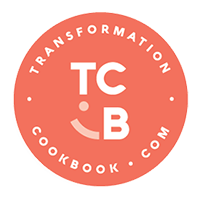Ask the Dr - Does cannabis have real medical benefits?
Cannabis has been used medically for thousands of years. Now many parts of the world have relaxed their laws against cannabis use including most of western Europe, Canada most of the US states and to some extent, Australia.
As a sign of the times, the Thailand government which always had extremely strict drug laws, is not only relaxing its stand on home cultivation, they are about to distribute millions of cannabis plants to its citizens.
On one side are the advocates that tout its value as a herbal medicine that is unfairly stigmatised. On the other are the sceptics who think supposed medical cannabis users really just want to get high.
Just to clarify, the health benefits are supposed to derive from the compound called cannabidiol, or CBD, while the compound that gets you high is called tetrahydrocannabinol, or THC.
In many countries there has been an explosion in the sale of various CBD products - everything from supplements, oils, lotions, drops and even shampoos and most of these products are very expensive. CBD-containing products are marketed with claims of promoting weight loss, hair growth, better sleep or concentration as well as helping you performing better... at everything.
The popularity maybe enhanced by its connotations with illegal use, but more likely the widely believed “natural fallacy” – the idea that anything natural must be inherently better for you than a manufactured substance.
The fact is, despite the billions being made from the sale of CBD-containing products, not much is being funnelled to well-designed studies that might support the plethora of rather specific health claims.
Despite the long history, there isn’t much science-based evidence that meets modern standards to support medical cannabis use. The only exception is to treat some severe forms of epilepsy in children.

The irony, (concern?) with the relaxation of distribution laws our governments have started is we really don’t understand the biological roles of CBD and THC.
This month, a review published in Ann Intern Med. 2022 Jun 7, of edible cannabis products used to treat pain found that the only effective ones are those with a very high THC content.
So yeah, getting stoned helps with pain.
Unfortunately, the pain relief came with side effects, in this case the known effects of taking cannabis, including dizziness, drowsiness and nausea. Other research has shown that frequent cannabis use is linked with memory and concentration problems.
The fact is, most products available to consumers aren’t permitted to contain enough CBD that would be likely to have medical benefits when used as recommended on the label – and certainly wouldn’t get anyone high.
The legal limit for supplements is 70 milligrams of CBD, while most trials on using CBD to treat anxiety or pain, for instance, use doses starting at about 300 milligrams. Shampooing your hair with this stuff every day, probably isn't going stimulate anything, except a reduction in your bank account.




